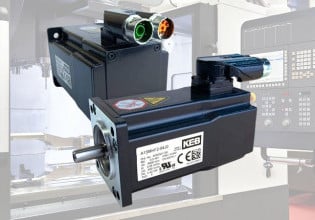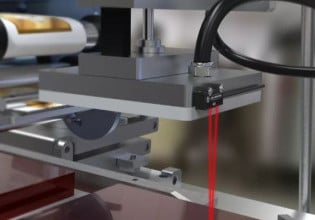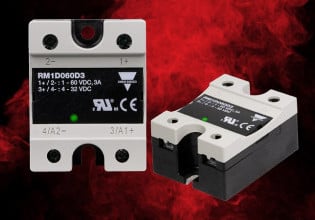D
As one with first-hand experience defending against a software patent lawsuit, and that is the subject of this discussion, here is my OPINION.
The problem is NOT that software has become patentable. The problem is that people writing the patents make claims that are overly broad and tend to cover pre-existing technology AND the patent examiners are not experienced enough to know the difference. In the defense against patent infringement, the defendant can read all of the correspondence between the patent attorneys and the patent examiner. I have seen claims rejected, slightly reworded, rejected again, and then when told by the applicant's attorney that the examiner was wrong, finally accepted and the bogus patent issued.
One of the issues now on the table is the Solaia lawsuit against users of Rockwell Automation PLCs. I have had no involvement in this case other than as an interested bystander. The suit is over infringement of the Square D patent by Roseman, US 5,038,318 - "Device for communicating real time data between a programmable logic controller and a program operating in a central controller".
Here is the full text of the abstract of this patent: "Add-in program instructs operable through a general purpose spreadsheet program in a personal computer to move real-time status and control messages directly between cells in the displayed spreadsheet and addressed registers of programmable logic controllers (PLCs) is disclosed. The PLCs operate such as machine tools for processing stations and connect together and to an interface card in the personal computer over a network. The invention facilities a user's real-time monitoring and control of the manufacturing performed at the machine tools or processing stations through mathematical and logical features of the spreadsheet, which are well known and easy for a user to implement."
You can read it yourself at: http://patft.uspto.gov/netacgi/nph-Parser?Sect1=PTO1&Sect2=HITOFF&d=PALL&p=1 &u=/netahtml/srchnum.htm&r=1&f=G&l=50&s1=5,038,318.WKU.&OS=PN/5,038,318&RS=P N/5,038,318
If the patent had been issued to Lotus Engineering for their program "Lotus Measure", then I would have no question. Since Lotus is mentioned in the "Other References" section, there is no doubt in my mind that Roseman simply liked what he saw in Lotus Measure the previous year and created this patent to apply to a PLC. The Lotus Measure software only mentions generic data acquisition equipment which they thought would be like I/O cards in a personal computer. To me, this is not very creative, novel, or patentable, but that is only my opinion. I believe that the implementation of this patent at Square D actually used Lotus Measure software bridged to their PLC rather than to internal I/O cards.
The filing date for this patent was Dec. 17, 1987 but it was not issued until August 6, 1991. Obviously it had be rejected and refiled many times in these four years.
The problem facing Solaia, who acquired all rights to this patent in 2000 from Schneider Electric which now owns Square D, is that no one actually acquires data from PLCs to stuff it into spreadsheets. That fact didn't phase Solaia! All they knew was that Rockwell's software acquired data from their PLCs and passed it on to their PC-based software. The fact that Rockwell used OPC/DA to do this and did not use a spreadsheet, has made no difference. Solaia has sued almost a dozen users of Rockwell PLCs for large amounts of damages, and then has settled for much smaller sums out of court. The settling amounts have not been revealed, but are most likely between one-quarter and one-half million US dollars. Just enough to be less than the cost of litigating the matter. Solaia has selected to file against profitable end users because there is so many of them. They have not wanted to engage Rockwell, which has now filed a suit against Solaia.
So we have another problem with software patents: using them to extort money from innocent users with the threat of protracted legal cases. Personally, I would like to see Solaia and their lawyers convicted of fraud and extortion. A little jail time might fix this problem.
On August 4, 2003, Anan Omus wrote:
> On August 2, 2003, Vladimir E. Zyubin wrote:
>> It seems it is not right. I bet there is a lot of borrowed codes in
>> the close systems... Which way can somebody check the close systems
>> for lack of the violations? <
> You file a lawsuit. <
And you think, MS open the source codes for the community after that? MS, that try to protect the source codes by law... because (as they argue) it increases the safety...
And what will give the occasion for the lawsuit? My suspicions? It is ridiculous... and obviously, the situation is not symmetric... it is a game with one goal...
>> The other question -- why it is possible in the USA to patent wheels?
>> I know there is a possibility to patent algorithms (sic!) in the USA.
>> It is obviously counterproductive laws... Is there any changes in mind
>> of the community? <
> Obviously counterproductive to everyone except patent lawyers. Why is
> it possible to patent algorithms in the USA? Who do you think has
> more influence with the legislators that implemented this bad law?
> Software engineers or lawyers? The answer tells you why. And because
> the damage this does to our industry is indirect (mostly big
> companies suing other big companies right now) many otherwise sharp
> people think it is inappropriate to discuss here the political
> aspects of the patent lawsuit du jour and all the slow but inexorable
> damage it does to innovation and the ability for individuals and
> small businesses to build software. Until EVERYBODY is screaming
> about the destruction possible with software patents, there won't be
> any changes. And, with WTO alignment of IP policy across the globe,
> this could be coming to a country near you.
Yes. But now I see only the attempts to fix the ugly situation. DMCA (Digital Millenium Copyright Act) for example...
BTW, there are opinions, that it violates USA constitution... the First Amendment. What about USA citizens? IMO, it is more important than cheap oil and a bottle of beer near TV screen...
So, everybody ought to discuss the matter... to make the things clear. It is a very bad situation when lawers make decisions in fields where they have no appropriate education... in the field where _complete comprehension_ is not exist... So, the question must be solved not only by lawers... but, necessarily, with software engineers' help and with philosophers' assistance as well.
--
Best regards.
Vladimir E. Zyubin mailto:[email protected]
( Complete thread: http://www.control.com/1026178002/index_html )
The problem is NOT that software has become patentable. The problem is that people writing the patents make claims that are overly broad and tend to cover pre-existing technology AND the patent examiners are not experienced enough to know the difference. In the defense against patent infringement, the defendant can read all of the correspondence between the patent attorneys and the patent examiner. I have seen claims rejected, slightly reworded, rejected again, and then when told by the applicant's attorney that the examiner was wrong, finally accepted and the bogus patent issued.
One of the issues now on the table is the Solaia lawsuit against users of Rockwell Automation PLCs. I have had no involvement in this case other than as an interested bystander. The suit is over infringement of the Square D patent by Roseman, US 5,038,318 - "Device for communicating real time data between a programmable logic controller and a program operating in a central controller".
Here is the full text of the abstract of this patent: "Add-in program instructs operable through a general purpose spreadsheet program in a personal computer to move real-time status and control messages directly between cells in the displayed spreadsheet and addressed registers of programmable logic controllers (PLCs) is disclosed. The PLCs operate such as machine tools for processing stations and connect together and to an interface card in the personal computer over a network. The invention facilities a user's real-time monitoring and control of the manufacturing performed at the machine tools or processing stations through mathematical and logical features of the spreadsheet, which are well known and easy for a user to implement."
You can read it yourself at: http://patft.uspto.gov/netacgi/nph-Parser?Sect1=PTO1&Sect2=HITOFF&d=PALL&p=1 &u=/netahtml/srchnum.htm&r=1&f=G&l=50&s1=5,038,318.WKU.&OS=PN/5,038,318&RS=P N/5,038,318
If the patent had been issued to Lotus Engineering for their program "Lotus Measure", then I would have no question. Since Lotus is mentioned in the "Other References" section, there is no doubt in my mind that Roseman simply liked what he saw in Lotus Measure the previous year and created this patent to apply to a PLC. The Lotus Measure software only mentions generic data acquisition equipment which they thought would be like I/O cards in a personal computer. To me, this is not very creative, novel, or patentable, but that is only my opinion. I believe that the implementation of this patent at Square D actually used Lotus Measure software bridged to their PLC rather than to internal I/O cards.
The filing date for this patent was Dec. 17, 1987 but it was not issued until August 6, 1991. Obviously it had be rejected and refiled many times in these four years.
The problem facing Solaia, who acquired all rights to this patent in 2000 from Schneider Electric which now owns Square D, is that no one actually acquires data from PLCs to stuff it into spreadsheets. That fact didn't phase Solaia! All they knew was that Rockwell's software acquired data from their PLCs and passed it on to their PC-based software. The fact that Rockwell used OPC/DA to do this and did not use a spreadsheet, has made no difference. Solaia has sued almost a dozen users of Rockwell PLCs for large amounts of damages, and then has settled for much smaller sums out of court. The settling amounts have not been revealed, but are most likely between one-quarter and one-half million US dollars. Just enough to be less than the cost of litigating the matter. Solaia has selected to file against profitable end users because there is so many of them. They have not wanted to engage Rockwell, which has now filed a suit against Solaia.
So we have another problem with software patents: using them to extort money from innocent users with the threat of protracted legal cases. Personally, I would like to see Solaia and their lawyers convicted of fraud and extortion. A little jail time might fix this problem.
On August 4, 2003, Anan Omus wrote:
> On August 2, 2003, Vladimir E. Zyubin wrote:
>> It seems it is not right. I bet there is a lot of borrowed codes in
>> the close systems... Which way can somebody check the close systems
>> for lack of the violations? <
> You file a lawsuit. <
And you think, MS open the source codes for the community after that? MS, that try to protect the source codes by law... because (as they argue) it increases the safety...
And what will give the occasion for the lawsuit? My suspicions? It is ridiculous... and obviously, the situation is not symmetric... it is a game with one goal...
>> The other question -- why it is possible in the USA to patent wheels?
>> I know there is a possibility to patent algorithms (sic!) in the USA.
>> It is obviously counterproductive laws... Is there any changes in mind
>> of the community? <
> Obviously counterproductive to everyone except patent lawyers. Why is
> it possible to patent algorithms in the USA? Who do you think has
> more influence with the legislators that implemented this bad law?
> Software engineers or lawyers? The answer tells you why. And because
> the damage this does to our industry is indirect (mostly big
> companies suing other big companies right now) many otherwise sharp
> people think it is inappropriate to discuss here the political
> aspects of the patent lawsuit du jour and all the slow but inexorable
> damage it does to innovation and the ability for individuals and
> small businesses to build software. Until EVERYBODY is screaming
> about the destruction possible with software patents, there won't be
> any changes. And, with WTO alignment of IP policy across the globe,
> this could be coming to a country near you.
Yes. But now I see only the attempts to fix the ugly situation. DMCA (Digital Millenium Copyright Act) for example...
BTW, there are opinions, that it violates USA constitution... the First Amendment. What about USA citizens? IMO, it is more important than cheap oil and a bottle of beer near TV screen...
So, everybody ought to discuss the matter... to make the things clear. It is a very bad situation when lawers make decisions in fields where they have no appropriate education... in the field where _complete comprehension_ is not exist... So, the question must be solved not only by lawers... but, necessarily, with software engineers' help and with philosophers' assistance as well.
--
Best regards.
Vladimir E. Zyubin mailto:[email protected]
( Complete thread: http://www.control.com/1026178002/index_html )






